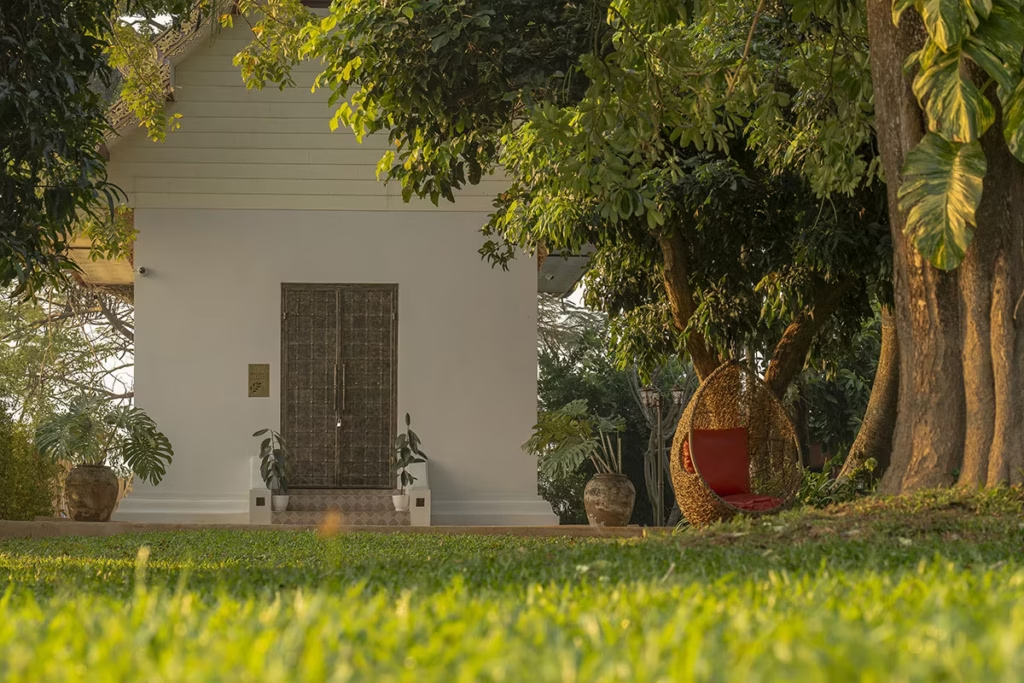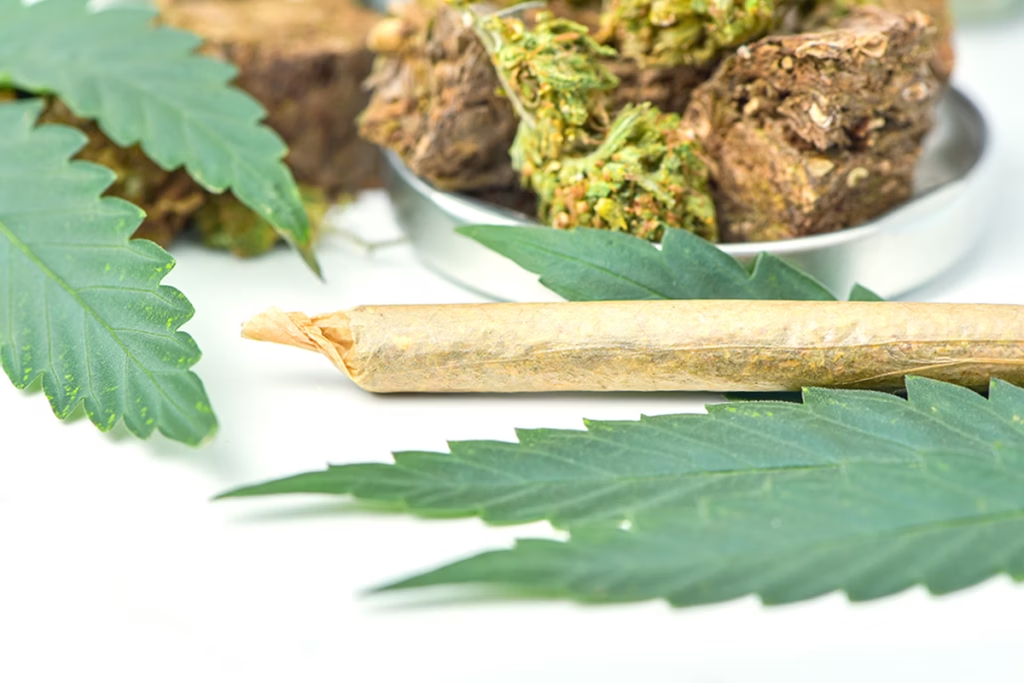If you are questioning whether your relationship with weed has become problematic, you are not alone.
Many people wonder if cannabis use warrants professional treatment, especially now when society often views it as a “harmless” drug.
In this article, we will answer the key question many cannabis users face: can you actually go to rehab for weed? And do you need to?
We will explore when professional treatment makes sense, what it involves, and how it can help you overcome marijuana dependence.
Can you go to rehab for weed?
Absolutely.
Cannabis addiction is a recognised medical condition, and many treatment centres, including luxury rehab facilities like The Dawn in Thailand, offer specialised programmes for marijuana dependence.
Professional treatment provides the structured support, therapeutic tools, and medical supervision needed to overcome cannabis addiction successfully.
When to go to weed rehab: Signs of weed addiction
Cannabis addiction often develops gradually, making it difficult to recognise. So, how do you know when it’s time to go to rehab?
Key warning signs include needing increasing amounts to feel the same effects, experiencing anxiety or irritability when you cannot use, and continuing despite negative consequences to your relationships, work, or health.
You might find yourself unable to enjoy activities you once loved without being high, or feel like you cannot cope with stress, sleep, or social situations without cannabis.
If you have tried to quit multiple times unsuccessfully, or if your cannabis use interferes with your responsibilities and goals, these are strong indicators that you need professional help.
Physical symptoms like headaches, mood swings, and sleep disturbances when you try to stop are also strong signs that marijuana dependence has developed.
What is marijuana rehab like?
At The Dawn, marijuana rehab combines evidence-based therapies with holistic healing in a serene Thai setting.
Your treatment journey follows our Treatment Roadmap, beginning with a thorough assessment to understand your unique needs. Our team creates a personalised treatment plan that addresses both your cannabis use and any underlying mental health concerns.
Our residential programme includes individual and group therapy sessions, and a specialised trauma programme to help address the underlying causes of your weed addiction.
Daily activities include mindfulness meditation, yoga, and fitness activities. You will also learn practical life skills and healthy coping mechanisms to replace cannabis use.
Our Thailand location offers complete separation from triggers, allowing full focus on recovery. The tropical setting provides natural healing through sunshine, fresh air, and connection with nature.
Accommodation features private rooms with ensuite bathrooms, comfortable bedding, and modern amenities. Nutritious meals prepared by professional chefs support physical healing, while our massage services and weekly excursions enhance overall wellbeing.
How long do people go to rehab for weed?
Treatment duration varies based on individual needs and severity of addiction. While some benefit from 30-day programmes, research shows that longer treatment periods significantly improve outcomes.
At The Dawn, we typically recommend 60 to 90 day rehab programmes for cannabis addiction. This allows time to break physical dependence, address psychological aspects, and establish new healthy patterns. Our 90-day programme provides the deepest healing and strongest foundation for lasting recovery.
The advantage of treatment in Thailand extends beyond just time away. The complete change of environment, combined with a structured daily programme, creates profound transformation that shorter local treatments can rarely achieve.
Many clients find that investing in extended treatment abroad costs less than multiple attempts at brief local programmes, while delivering better and more sustainable results in recovery.
How much does rehab for weed cost?
Cannabis addiction treatment costs vary significantly based on location and programme type. In Thailand, treatment at facilities like The Dawn typically costs a third less than comparable programmes in Western countries, without compromising quality of care.
This cost advantage allows you to access world-class treatment, luxury accommodations, and extended care duration that might be financially prohibitive elsewhere.
Many clients find that investing in comprehensive treatment abroad is actually more cost-effective than repeated attempts at less intensive local programmes.
What is the hardest day of quitting weed?
The first three to seven days are typically the most challenging when quitting cannabis.
You will likely experience peak withdrawal symptoms including sleep disturbances, vivid dreams, decreased appetite, and mood changes during this period.
Most people begin feeling more normal after two to four weeks, though some psychological symptoms like anxiety and cravings can persist longer.
Professional treatment helps you navigate this difficult period with medical support, therapeutic guidance, and proven strategies to manage withdrawal symptoms safely and comfortably.
How does quitting weed change you?
Quitting cannabis creates profound positive changes in your life.
Within weeks, you are going to notice improved sleep quality, increased energy levels, and better emotional regulation.
Your memory and cognitive function will sharpen, and you will rediscover your natural ability to feel pleasure and motivation.
Many people report feeling more present in their relationships, more productive at work, and more capable of handling stress without chemical assistance.
Life becomes more vibrant and meaningful when you are not viewing it through the haze of constant cannabis use. Ultimately, you will develop genuine confidence in your ability to cope with life’s challenges naturally.
What happens after you leave marijuana rehab?
Recovery continues long after leaving treatment.
Cannabis addiction carries risks of relapse, especially during stressful periods or when returning to old environments and social circles.
Quality treatment centres like The Dawn provide free lifetime aftercare support, including ongoing group therapy sessions, support group connections, and relapse prevention strategies.
We also have a Step Down Programme to gradually transition clients from intensive care to being more independent. This helps build confidence before full reintegration back into daily life.
Our alumni programme offers continued peer support, and we maintain contact with graduates to ensure lasting success.
This continued support significantly increases your chances of maintaining long-term sobriety.
Ready to take the next step?

You have seen the signs. You understand how cannabis affects your brain and body. You have probably realised that breaking free from weed takes more than willpower – it requires the right environment, professional support, and enough time to truly heal.
As Asia’s only CARF-accredited rehab centre, the gold standard for rehab centres in the US, you are guaranteed evidence-based treatment and the highest standards of client care and safety.
We use a person-centred and trauma-informed approach to help you understand why you started using cannabis and what keeps you dependent. We have helped over 1,000 clients achieve lasting recovery.
Contact us today to learn more about our programming that gives you the best chance at a cannabis-free life.
Frequently Asked
Is marijuana actually addictive?
−Yes, marijuana is addictive.
Cannabis use disorder is a recognised medical condition characterised by tolerance, withdrawal symptoms, and inability to control use despite negative consequences.
Why is it so hard to quit weed?
+Many people considering rehab wonder if their struggle to quit cannabis is "normal" or if they really need professional help.
The difficulty you are experiencing is actually one of the main reasons people seek treatment.
Cannabis affects your brain's reward system, creating both psychological and physical dependence.
THC alters dopamine levels, making everyday activities feel less rewarding without the drug. When you try to quit, your brain struggles to produce natural feelings of pleasure and motivation.
Many people find themselves unable to sleep, eat normally, or feel emotionally balanced without cannabis, making quitting feel nearly impossible despite their best efforts.
This isn't a personal failing; it's evidence that your brain chemistry has been significantly affected. Professional rehab provides the medical support, therapeutic tools, and structured environment needed to successfully overcome these biological and psychological challenges.
What can I replace weed with for anxiety?
+Healthy alternatives for managing anxiety include regular exercise, meditation, deep breathing techniques, yoga, and therapy.
Professional treatment teaches evidence-based coping strategies like cognitive behavioural therapy techniques, mindfulness practices, and stress management skills that address anxiety without substances.
How long do I need to be in rehab for weed?
+Most people benefit from 60-90 days of residential treatment for cannabis addiction.
The optimal length depends on factors like duration of use, co-occurring mental health conditions, and previous treatment attempts.
Extended treatment periods often lead to better long-term outcomes and lower relapse rates.

